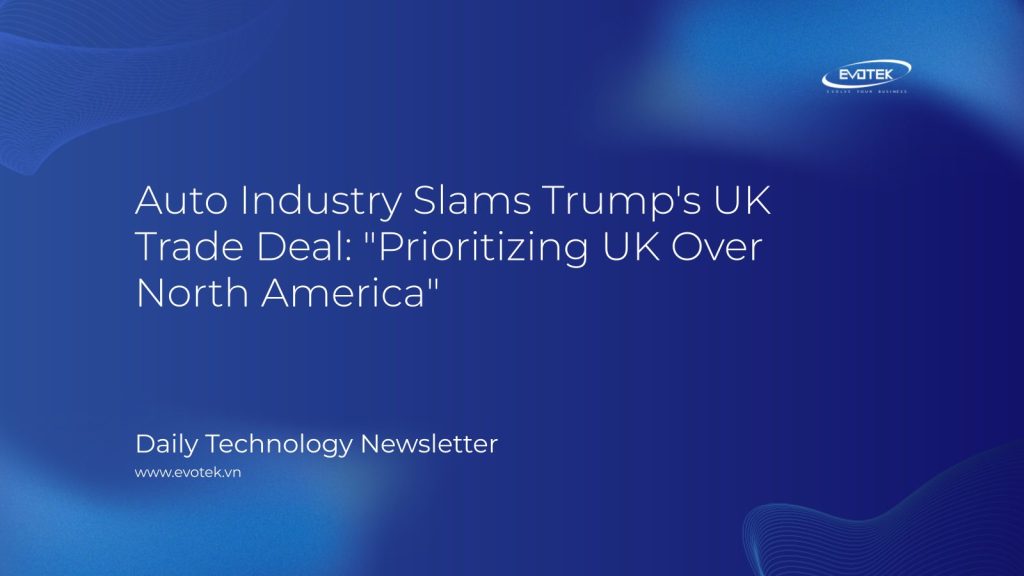Washington, D.C. – President Trump’s newly forged trade agreement with the United Kingdom is facing heavy criticism from leading American automakers, who argue that the deal prioritizes British interests at the expense of the U.S. auto industry and its North American partners.
The agreement, announced on Thursday, marks the administration’s first bilateral trade pact since initiating and subsequently pausing a “reciprocal” tariff approach with key trading nations. While British automotive leaders have lauded the deal’s provision allowing the UK to export 100,000 cars to the U.S. at a 10% tariff rate, American manufacturers are sounding the alarm.
“The U.S. automotive industry is deeply intertwined with Canada and Mexico, a reality that doesn’t hold true for the U.S. and UK,” stated Matt Blunt, President of the American Automotive Policy Council, representing Ford, General Motors (GM), and Stellantis. “We are disappointed that the administration prioritized the UK ahead of our North American partners.”
Despite maintaining factories within the United States, these companies anticipate significant setbacks due to the President’s tariffs, given the automotive industry’s intricate supply chains spanning North America. GM projected potential profit losses of up to $5 billion this year due to these levies, while Ford anticipates a $1.5 billion impact, according to the Associated Press.
The repercussions of increased import duties have already led Stellantis to halt production at its Canadian and Mexican plants in April, both regions being subject to taxes on foreign vehicles.
Blunt further contended that the UK deal undermines the United States-Mexico-Canada Agreement (USMCA), President Trump’s initial trade accord which replaced the North America Free Trade Agreement (NAFTA).
“This agreement will render UK vehicle imports, containing minimal U.S. content, cheaper than USMCA-compliant vehicles from Mexico or Canada, which are comprised of half American parts. This directly harms American automakers, suppliers, and auto workers,” Blunt warned. “We hope this preferential treatment for UK vehicles doesn’t establish a precedent for upcoming negotiations with competitors in Asia and Europe.”
Mike Hawes, chief executive of the British industry group SMMT, hailed the trade pact as “great news” on Thursday, emphasizing that the tariffs posed “a severe and immediate threat to UK automotive exporters” and that the agreement would deliver “much-needed relief.”
The deal also establishes a new “trading union” for steel and aluminum components, eliminating certain U.S. tariffs on these metals.
In response to Blunt’s criticism, White House spokesperson Kush Desai emphasized President Trump’s commitment to the American auto industry. “No president has taken a greater personal interest in reviving the American auto industry than President Trump,” Desai told The Hill. “The Trump administration is working hand-in-glove with automakers to reshore manufacturing that is critical to our national and economic security, including with custom-tailored tariff relief and deregulatory policies.”

 日本語
日本語 한국어
한국어 Tiếng Việt
Tiếng Việt 简体中文
简体中文